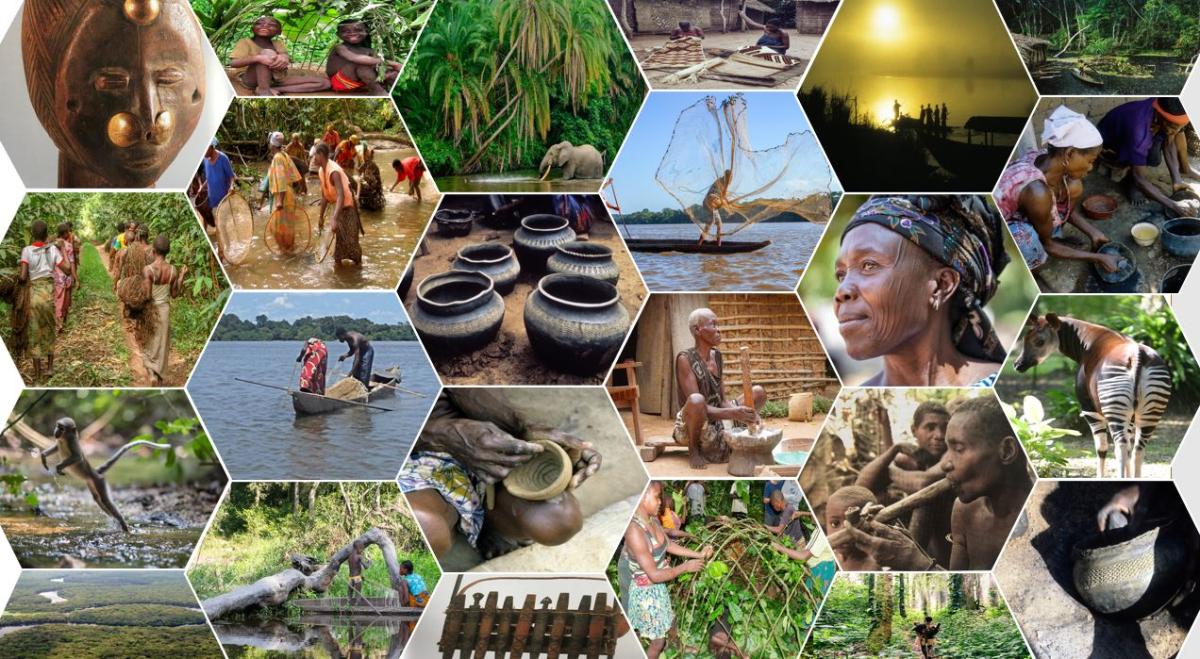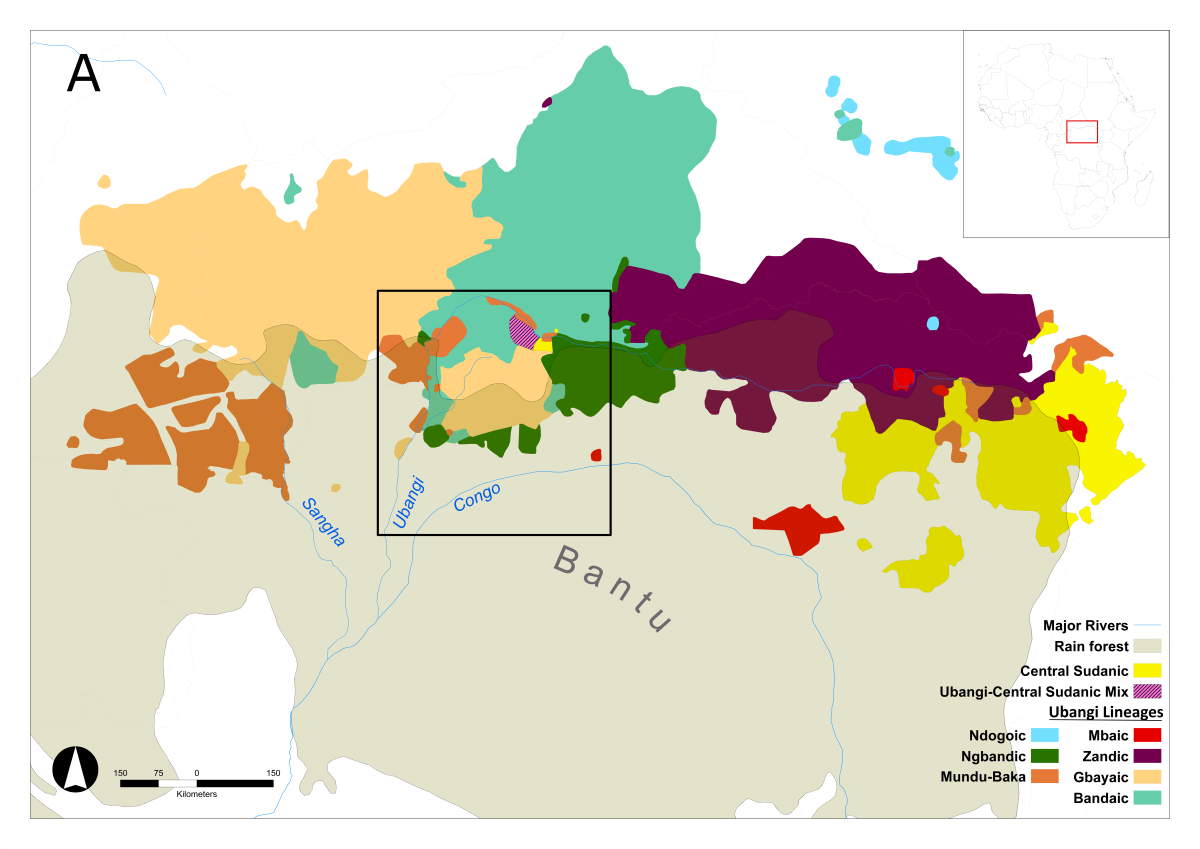 Ghent University (Belgium) has a strong focus on Africa, with over 450 ongoing projects with African partners, in each of its eleven faculties. Mapping all of these projects, making this expertise available to academic and non-academic stakeholders in Africa and beyond, and facilitating university collaboration between Ghent University and institutions in Africa, are the main objectives of the Africa Platform of Ghent University. Networking, connecting people and looking for synergies is what the Africa Platform does on a daily basis – which has led to more incoming students from Africa, more research projects in collaboration with African partners, more bilateral agreements and more joint PhDs over the last fifteen years. The Africa Platform also edits the Scopus-indexed journal Afrika Focus, and so offers a publication platform to emerging scholars, mostly from Africa.
Ghent University (Belgium) has a strong focus on Africa, with over 450 ongoing projects with African partners, in each of its eleven faculties. Mapping all of these projects, making this expertise available to academic and non-academic stakeholders in Africa and beyond, and facilitating university collaboration between Ghent University and institutions in Africa, are the main objectives of the Africa Platform of Ghent University. Networking, connecting people and looking for synergies is what the Africa Platform does on a daily basis – which has led to more incoming students from Africa, more research projects in collaboration with African partners, more bilateral agreements and more joint PhDs over the last fifteen years. The Africa Platform also edits the Scopus-indexed journal Afrika Focus, and so offers a publication platform to emerging scholars, mostly from Africa.
Ghent University’s Faculty of Arts & Philosophy does not only offer a fully-fledged Ba, Ma and PhD programme in African Studies, it also boasts six ERC projects with Africa at its core. We are proud to present these six innovative projects to you:
BantuFirst (2018-2023)
BantuFirst is a cross-disciplinary research project aiming at transforming our thinking on the Bantu Expansion by collecting new empirical evidence to gain a better understanding of the interconnections between human migration, language spread, climate change and early farming in Late Holocene Central Africa. It unites researchers in Africa and Europe with outstanding expertise in Central African archaeology, archaeobotany and historical linguistics into one single team. Together they carry out evidence-based frontier research on the first Bantu-speaking settlements south of the equatorial rainforest in parts of the Democratic Republic of Congo, the Republic of Congo and Angola that are as yet still unexplored by archaeologists.
https://www.bantufirst.ugent.be/
ASEA (2019-2024)
Around 1900, the East African region (present-day Uganda, Kenya, Tanzania, Rwanda, Burundi, Eastern Congo, and northern Mozambique and Malawi) contained hundreds of thousands of slaves. By 1920, they had disappeared off the map. We have exemplary studies of the politics and social struggles around slave emancipation on the Swahili coast, but very little information on the aftermath of slavery in mainland areas further away from the sea. Yet better-studied comparative cases in West Africa and the New World show that typically, slavery has a long afterlife. In East Africa, it is clear that colonial administrators and missionaries preferred to keep quiet about
continuing marginalization and exploitation, as it would have undermined the narrative of colonialism as a force against slavery, thus for good. What remains unknown is the role of ex-slaves themselves in establishing this blanket of silence, and how it helped or harmed them. Moreover, the gender and family dynamics of emergence from slavery, ex-slaves’ migration routes, their negotiations for access to productive resources and status, all remain to be established. The ERC project pursued these questions through five place-specific case studies in Kenya, Uganda, Tanzania and the Eastern Congo.
https://www.ugent.be/en/research/explorer/eu-trackrecord/h2020/erc-h2020/asea.htm
YORUBAPRINT (2021-2026)
This project is examining over a century of print culture in Yoruba-speaking region of Nigeria, and its cross-cultural connection with other cultural forms. The hypotheses of this study are that the contribution of Yoruba print culture to the emergence of new cultural forms – especially in literature and the performing arts sectors - is yet to be fully exploited and explained by researchers because they have concentrated on a small range of research materials. Due to its uniqueness, this culture constitutes a starting point for articulating the idea of modernity in a Nigerian context and for understanding contemporary literary history in Nigeria. As the precursor to the recruitment of Yoruba people into the European modernity project, Yoruba print culture is important not only because it was founded at the heart of the European colonial project, with its literature becoming a major medium of anti-colonial struggle, but also because it uncovers a robust history of urban engagements with modernity.
https://www.ugent.be/en/research/explorer/eu-trackrecord/h2020/erc-h2020/yorubaprint
VIOLENCE WORK (2022-2027)
VIOLENCE WORK is a groundbreaking study of everyday violence in Belgian Central Africa—Burundi, Congo, and Rwanda (19th-20th C). Though colonial violence has been studied widely, few have explored how everyday violence enabled colonialism and allowed it to persist. This project combines hitherto neglected source materials and a novel conceptual entry point—violence work(ers)—to foreground the everyday violent practices crucial to creating and maintaining the colonial state. The project’s core claim, and main innovation, is that violence work was not performed exclusively by formal violence workers—the men in uniform—but rather by a range of actors (colonizer and colonized) in- and outside the state. Everyday violence work includes not only direct acts of physical violence (e.g. whipping) but also other forms of punishment, such as incarceration and coercion through the threat of violence, as well as subtler forms of aggression forcing compliance (e.g. harassment) and the ways these different levels of violence reinforced each other. This inclusive definition enables an unprecedented, comprehensive view of the enforcement practices that colonial rule depended on.
CongUbangi (2023-2028)
 The Congo-Ubangi watershed in the northern margins of the Congo rainforest is home to a complex mosaic of genealogically and structurally diverse languages spoken by small-size communities with different material cultures and subsistence specializations. Straddling the borders of three modern countries in Central Africa, i.e., Congo-Kinshasa, Congo-Brazzaville, and the Central African Republic, it is a major hotbed of linguistic, cultural, and genetic diversity with a deep history of human occupation. Despite the myriad of insights it could generate about language evolution and deep human past, it is poorly known due to difficulty of access and an astonishingly intricate configuration.
The Congo-Ubangi watershed in the northern margins of the Congo rainforest is home to a complex mosaic of genealogically and structurally diverse languages spoken by small-size communities with different material cultures and subsistence specializations. Straddling the borders of three modern countries in Central Africa, i.e., Congo-Kinshasa, Congo-Brazzaville, and the Central African Republic, it is a major hotbed of linguistic, cultural, and genetic diversity with a deep history of human occupation. Despite the myriad of insights it could generate about language evolution and deep human past, it is poorly known due to difficulty of access and an astonishingly intricate configuration.
CONGUBANGI will realize a breakthrough in our understanding of how linguistic diversity correlates with cultural and genetic diversity and why it originated and persisted in this specific ecoregion for millennia through an interdisciplinary approach involving linguistics, archaeology, and genetics. Understanding the genesis of a central area in the continent where mankind originated represents a unique opportunity to learn about our shared human history of evolution, migration, and diversification, and their impact on human language, a faculty unique among all forms of animal communication. Beyond research, CONGUBANGI will replicate world-wide efforts to preserve local linguistic diversity in a region where it is threatened to extinction by multiple uniformizing pressures, so that it can be made permanently available for posterity.
CATTLEFRONTIERS (2023-2028)
CATTLEFRONTIERS explores how cattle production in Southern and Central Africa was transformed during the colonial and early postcolonial period. From the 1890s to 1970s, (post)colonial governments, scientists, entrepreneurs and settlers promoted a broad range of interventions to overcome the allegedly uneconomic attitudes of African pastoralists and turn cattle into profitable commodities. Adopted, adapted, contested or eluded by African cattle herders and owners, these interventions transformed pre-existing cattle economies, pastoralist societies, rural ecologies and animal populations in many and often unexpected ways. This history, however, is still under-studied, only partially understood and marginalised in both African and global history. CATTLEFRONTIERS breaks new ground by offering the first history of these transformation processes from hoof to table, for multiple empires and over a long time frame, and by integrating them into global history through the concept of ‘commodity frontiers’. It pursues these objectives through a series of interlocking case studies on French, Portuguese and Belgian (post)colonies in Southern and Central Africa that draw on multi-sited and multilingual archival work and combine methodological approaches from African, social, economic, environmental, colonial and global history, as well as the history of science. In so doing, CATTLEFRONTIERS will write livestock back into the agricultural and socio-economic history of Africa, and integrate African cattle in global economic and commodity history.
More information? Contact Annelies.Verdoolaege@UGent.be
